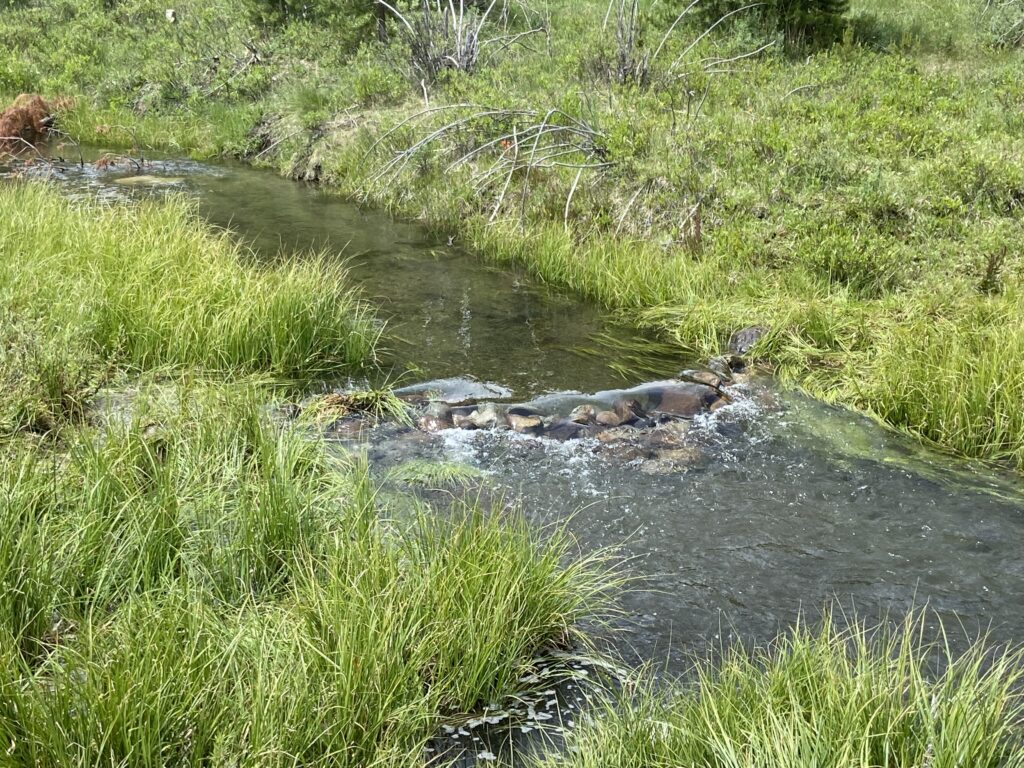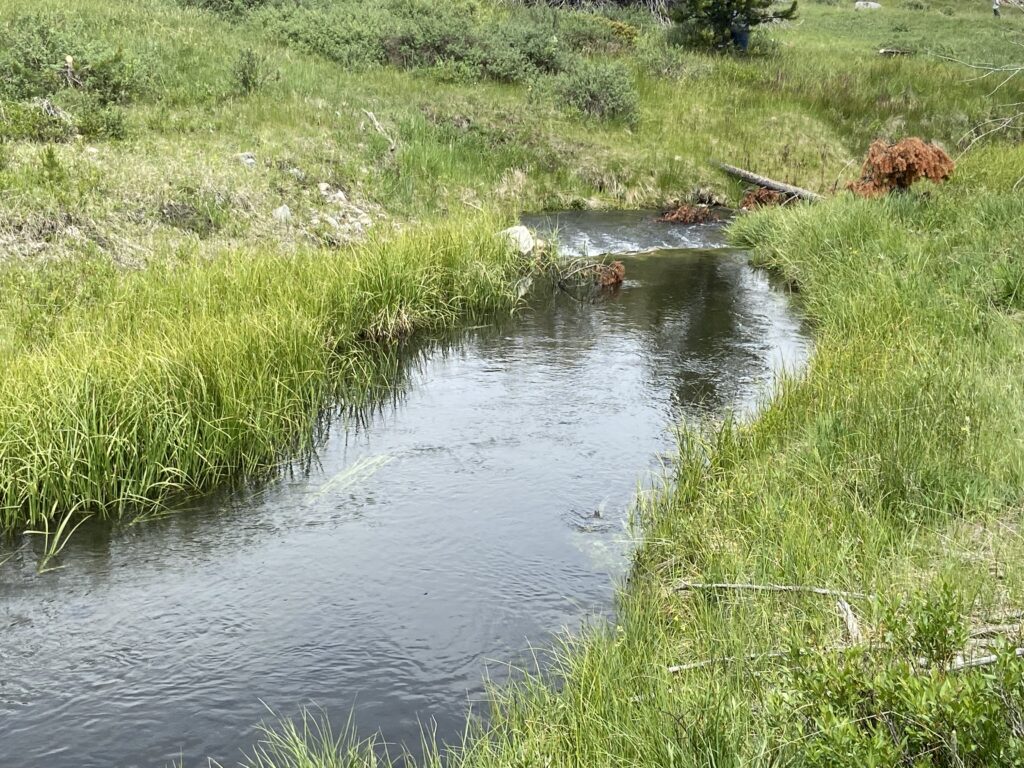On Friday, June 20th, our third day of the course, we were all lucky enough to join Trout Unlimited and the U.S. Forest Service on one of their restoration projects outside of Anaconda. For this project, the two representatives, Ben and Kevin, tasked us with constructing rock dams in a degraded stream. Rock dams, which are essentially piles of rocks and mud, serve the purpose of strategically altering stream flow and raising the water level, making the habitat more suitable for certain species. In our case, we were building the dams in order to help Bull Trout, a native Montana species that is threatened by the growing population of Brook Trout.

Overall, this process took roughly 4-5 hours of work, yet the results that we saw were immediate. We saw faster water flow and a higher water table soon after the construction. This was very important for my learning early on in the course, as I got to see that we CAN have a positive effect on the environment, motivating me to keep learning.
Despite this early burst of motivation, it was important for me to remind myself that my actions, although helpful, were not exactly what the landscape needs. What it needs is a water regulation system free from human inputs and intervention. Ultimately, getting to that point is a lot harder than piling up rocks, yet if we want to see our ecosystems actually restored, it is vital that we help these systems be resilient.
In truth, restoration is pointless if it doesn’t recognize that nature and humans are intertwined, and we must embrace nature’s lessons of reciprocity and nudge both it and ourselves towards functioning in a way that is mindful and respectful of the other.
Working with Trout Unlimited got me excited for my future place in the environmental field, helping me see a potential future career. With this being said, it was important for me to remember that I, alone, am not the solution to all of nature’s problems, but rather a small piece of a larger puzzle.
